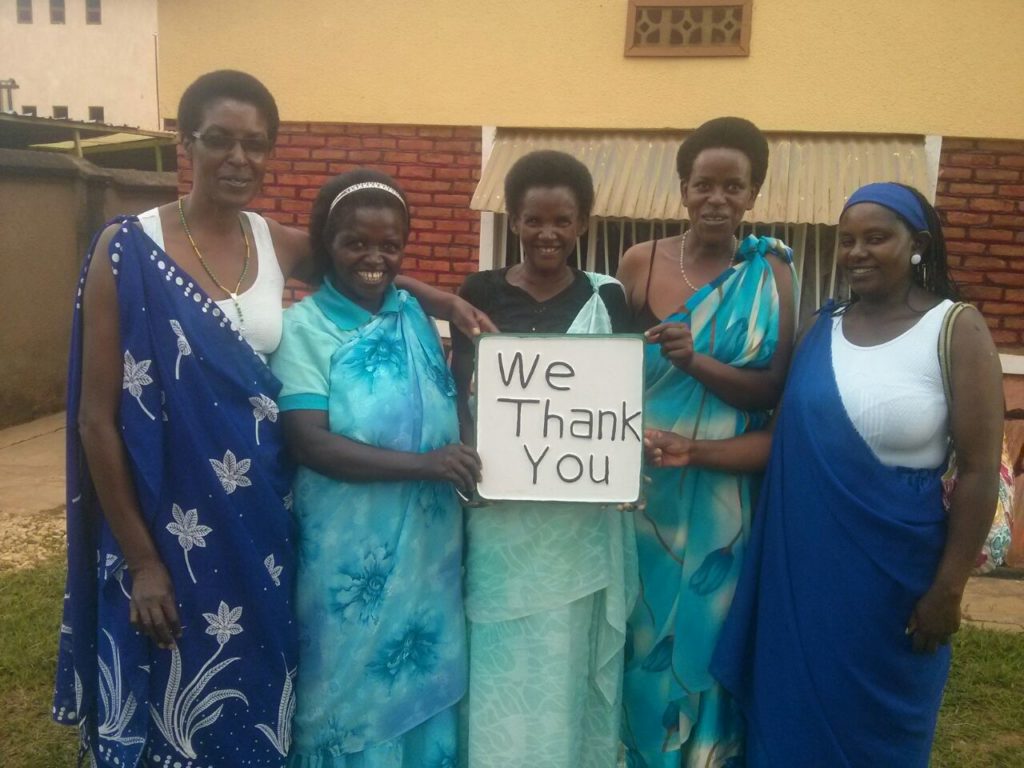
Continuing our series of articles from our Annual Report 2024/25, we outline here our work on our Foundation Rwanda programme. If you are based in the US and would like to make a donation to support the work of Foundation Rwanda before year end, then please do so here.
Through funding from Foundation Rwanda, Survivors Fund (SURF) is currently addressing the education and counselling needs of young people conceived through rape during and under circumstances directly related to the 1994 genocide committed against Tutsi in Rwanda. The challenge for the affected mothers and children is that FARG, the government body that assists vulnerable survivors of the genocide, does not consider these young people eligible for support because they were born after genocide and thus are not by definition survivors. However, they are recognised to be a particularly vulnerable and marginalised population.
Since Foundation Rwanda’s inception in 2007, Survivors Fund (SURF) has been the key partner in providing life-changing services to the Foundation Rwanda families, which has helped more than 1,700 women and their offspring.
Unemployment is at a high rate in Rwanda, especially among young people. Technical and Vocational Education and Training (TVET) has been a principal solution to address youth unemployment because graduates with a trade are more easily able to start their own businesses, create job opportunities and sustain themselves and their families financially. In 2024, 26 new youth were supported to access TVET through funding for relevant courses and programmes.
Even though Foundation Rwanda have supported many young people to attend TVET courses and over 486 of them have graduated with adequate knowledge and skills, many of those graduate’s face unemployment challenge and do not have the capital to start their own businesses.
To address this challenge, Foundation Rwanda has set up a Small Business Innovation Fund programme to provide capital to youth who want to start small businesses. In 2024, 17 youth have been sponsored to start their own businesses and there is a plan to support more youth in the near future.
The students who have grown into inspiring, hopeful young adults now face the challenge of securing jobs or attending university while grappling with the circumstances of their birth and the legacy of trauma. SURF remains committed to continue implementing Foundation Rwanda’s programs with our local partner organizations, Solace Ministries, Kanyarwanda, and AVEGA Agahozo.
N.H *
N.H. is a 30-year-old woman and mother of three children, one of whom was born before her marriage. She lives with her mother and two brothers. N.H. herself was born as a result of her mother being raped during the 1994 Genocide against the Tutsi.
Before participating in the youth camp, N.H. faced significant life challenges, including emotional and verbal abuse from her husband, which left her unable to speak openly or assert herself in public. Her participation in the youth camp marked a turning point. Through the support of counsellors and the shared experiences of other young survivors, she found the courage to speak about her life and the strength to begin healing. “When I returned home, I felt empowered to confront my challenges. Though my relationship with my husband worsened, I was no longer afraid to seek help. I reached out to the local health centre, as we had been informed during the camp about the availability of mental health professionals in the community. This support made a huge difference in my life I can now sleep peacefully, and I am no longer overwhelmed by my husband’s verbal abuse.
Attending the Youth Camp again gave me renewed strength. I no longer experience suicidal thoughts. I feel a strong sense of responsibility and purpose—for myself and for my children.
My relationship with my family has also improved. One of my siblings now visits me regularly, and we are able to talk peacefully. My mother is also receiving support through a counselling group, and we are rebuilding our relationship after years of conflict.
I have also built meaningful friendships with other young people from the camp. We stay in touch, and when I miss them or need someone to talk to, I know I can call.
I’ve started saving money and making plans. If my husband’s mistreatment continues, I now feel confident in my ability to support my children and myself independently. I no longer see ending my life as the only way out. Thank you for helping me find purpose and hope for a better future.”
